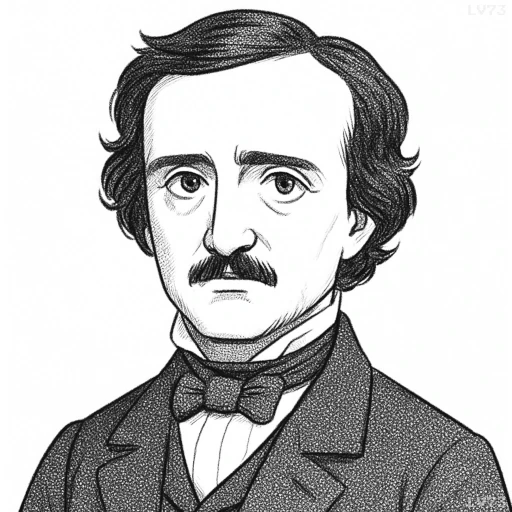“The true genius shudders at incompleteness – and usually prefers silence to saying something which is not everything it should be.”

- January 19, 1809 – October 7, 1849
- American
- Novelist, poet, critic
table of contents
Quote
“The true genius shudders at incompleteness – and usually prefers silence to saying something which is not everything it should be.”
Explanation
In this quote, Edgar Allan Poe highlights the notion that true genius is characterized by a relentless pursuit of perfection. The genius, in his view, is not satisfied with works or expressions that are half-finished or incomplete. The idea that a genius would rather remain silent than speak something that doesn’t fully capture the essence of what they mean emphasizes the importance of precision and artistic integrity. For Poe, true mastery is defined by an ability to express thoughts and emotions in their most complete and refined form, without settling for less.
Poe’s obsession with perfection is a theme that runs throughout his writing, where he often focused on creating works of great emotional depth and meticulous structure. His own works—particularly his poems and short stories—are known for their tight, controlled structure and for their exploration of psychological depth. Poe’s concept of genius is influenced by the Romantic movement, which prized individual expression, artistic integrity, and the pursuit of flawless execution in art. The statement also reflects the intense personal standards that many artists, especially in the Romantic era, held for their work, often to the point of self-doubt or frustration.
In today’s world, this quote might resonate with the modern obsession with perfectionism in creative and intellectual pursuits. Whether in writing, art, or even personal expression, there is often an expectation that everything created must be complete and polished. However, Poe’s quote can also serve as a reminder that the pursuit of perfection can lead to self-imposed limitations or inactivity, as the fear of incompleteness may prevent individuals from expressing themselves at all. In this sense, the quote raises the question of whether silence or inaction is preferable to creating something that is imperfect, and how the balance between creative courage and perfectionism shapes both the artist’s process and the audience’s experience.
Would you like to share your impressions or related stories about this quote in the comments section?




